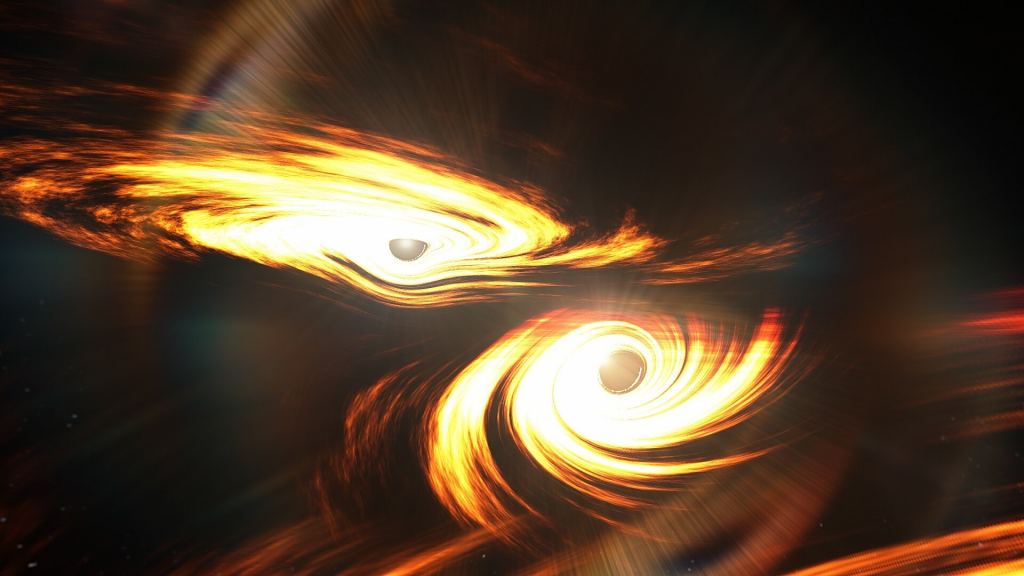The early moments of the universe were turbulent and filled with hot and dense matter. Fluctuations in the early universe could have been great enough that stellar-mass pockets of matter collapsed under their own weight to create primordial black holes. Although we’ve never detected these small black holes, they could have played a vital role in cosmic evolution, perhaps growing into the supermassive black holes we see today.
A new study shows how this could work, but also finds the process is complicated. A popular model for primordial black holes is that they were seeds for galaxies and stars. Even a small black hole would attract matter to it, forming a galactic nebula, and the more dense gas around the black hole would trigger the formation of early stars.
This would explain why galaxies formed early in the universe, and also why most galaxies contain a supermassive black hole. Some argue that primordial black hole seeds play an essential role in the formation of early galaxies. Without black holes to trigger the process, galaxies would not have formed early.
To look at this question, the team created a simulation on a massive supercomputer known as Stampede2. From their simulations, the team found that primordial black holes can encourage galaxy formation and star production, but they can also hinder it. Primordial black holes could have pulled matter toward it to trigger stellar formation, but matter consumed by a black hole also heats nearby gas, causing it to push away.
So primordial black holes turn out to have a give-and-take effect. Attracting matter into galactic clouds gravitationally, but also heating the central region and hindering star production. So primordial black holes don’t play a conclusive role.
The effects of seeding and heating almost cancel each other out. The smallest changes in initial conditions can determine whether a primordial black hole is a help or a hindrance in early galaxy formation. Simulations show how varying numbers of primordial black holes affect galaxy formation.
Credit: Liu, et al Of course, things can change significantly with the introduction of dark matter. Dark matter is attracted to a black hole gravitationally but doesn’t heat nearby material the way regular matter does. Primordial black holes and dark matter could have worked together in a way that overpowers any heating from the primordial black holes.
If that’s the case, the interaction of dark matter and primordial black holes could have created gravitational waves. These waves are too faint for us to detect right now, but future gravitational wave telescopes might be able to. These detailed simulations show just how subtle and complex the role of primordial black holes can be.
As the team moves toward creating even more detailed simulations, they hope to see how dark matter, primordial black holes, and star production might lead to the formation of supermassive black holes. In time they might be able to tell us how such big objects have such small beginnings. Reference: Liu, Boyuan, Saiyang Zhang, and Volker Bromm.
“Effects of stellar-mass primordial black holes on first star formation. ” Monthly Notices of the Royal Astronomical Society 514. 2 (2022): 2376–2396.
The post Primordial Black Holes Could Have Triggered the Formation of Supermassive Black Holes appeared first on Universe Today. .
From: universetoday
URL: https://www.universetoday.com/157128/primordial-black-holes-could-have-triggered-the-formation-of-supermassive-black-holes/



